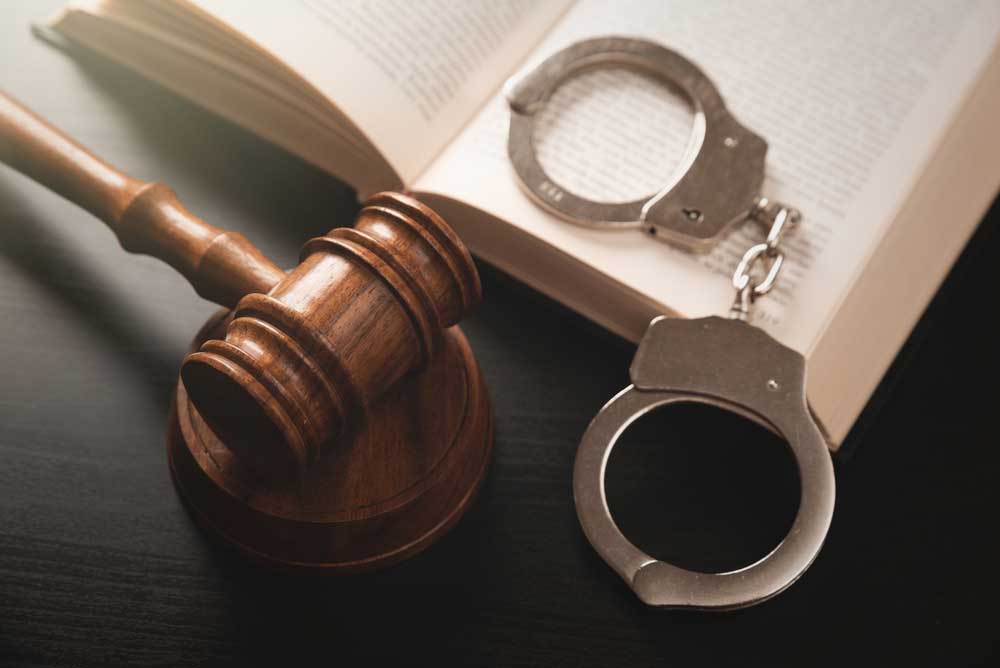A criminal defense attorney plays an important role in protecting the rights and freedoms of people who have been accused of committing a crime. Criminal defense attorneys are responsible for representing their clients throughout the legal process — from pre-trial investigations to courtroom proceedings. Their main goal is to make sure their client’s constitutional rights are being protected by advocating for the best possible outcome.
The primary responsibilities of a criminal defense attorney include:
- Looking at the charges being filed against their client.
- Analyzing the evidence being presented by the prosecution.
- Negotiating plea deals with the prosecutions (if necessary).
- Defending their clients during trials.

A criminal defense attorney must also be able to communicate with their clients, so they understand the nature of the charges that have been filed against them and what options they have available under the law. The importance of having good legal representation during criminal proceedings can’t be emphasized enough, because it can mean the difference between being acquitted or convicted of a crime.
Here is a more detailed list of what a criminal defense attorney is responsible for.
#1: Protecting the Constitutional Rights of Their Clients
The primary responsibility of a criminal defense attorney is to protect the constitutional rights of their clients by making sure that the authorities respect and abide by these rights throughout every part of the process — from the arrest to the sentencing. He or she must also make sure their Fifth Amendment right against self-incrimination (which prohibits them from forcing confessions from defendants), as well as their Sixth Amendment right to legal counsel.
Criminal defense attorneys must know how law enforcement agencies conduct their investigations and collect evidence, so they can find any violations of their client’s Fourth Amendment rights. They must also be able to scrutinize reports and to question witnesses during pre-trial hearings or depositions. The purpose of this process is not only to uncover any exculpatory evidence but to also suppress any evidence that has been gathered through what is referred to as an “illegal search and seizure.”
#2: Investigating Charges and Analyzing Evidence
Investigating charges and analyzing evidence is an important responsibility for criminal defense attorneys, which requires a detailed understanding of the legal system and the ability to look at every part of a case with a critical eye. The purpose of this process is to look for any weaknesses or inconsistencies in the prosecution’s case, so they can be used to get their client a more favorable outcome.
The first thing they must do it gather any relevant information about the case, which can include but may not be limited to:
- Police reports.
- Witness statements.
- Forensic evidence.
They must also look for any other documentation that may be available. Once this first step has been completed, they will carefully analyze every piece of evidence for any contradictions or discrepancies before coming up with a defense strategy.
#3: Negotiating Plea Deals
A plea deal refers to an agreement that has been made between the defendant and the prosecutor on a specific charge, and being able negotiate them is an important job for a criminal defense attorney. A plea deal will usually lead to reduced charge or sentence for the person being accused. It can be initiated by either party, but they usually involve both attorneys who are discussing options that can benefit their respective clients.
The advantage of negotiating a plea deal is that it can avoid the uncertainties that can come from a trial, which can include being found guilty or innocent. Trials can be expensive, time-consuming, and emotionally draining for everyone involved. If defendants are convicted at trials, the consequences can be more severe. This can include prison time, hefty fines, and a host of other penalties.
#4: Defending Clients During Trials
This part of the legal process can be daunting for attorneys and their clients because it involves presenting evidence, cross-examining witnesses, and making persuasive arguments to convince the judge or jury of their client’s innocence. To prepare for a trial, criminal defense attorneys must do an extensive amount of research on the case. They must look at all available evidence, so they can come up with a strong defense. They must also work with private investigators or expert witnesses who specialize in certain areas (such as DNA analysis or accident reconstruction).
During the trial, criminal defense attorneys are responsible for looking out for the best interests of their clients. This can include questioning witnesses that have been presented by the prosecution, objecting to improper evidence or testimonies, as well as coming up with compelling opening and closing statements that summarize their client’s version of events.
If you’re looking for the best criminal defense attorney in Corpus Christi to help you with your case, be sure to get in touch with Gale Law Group.
